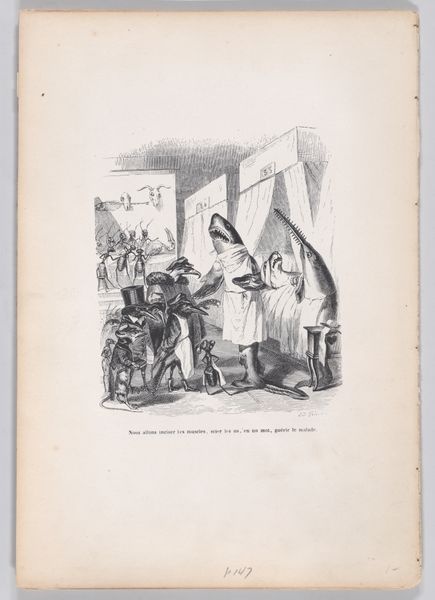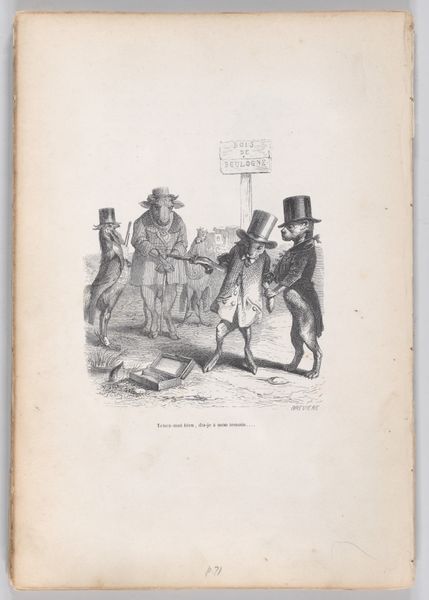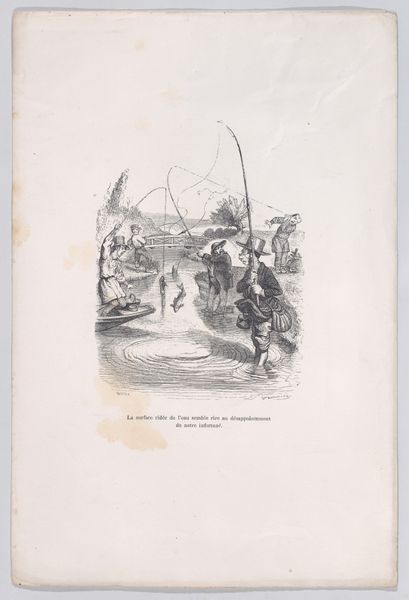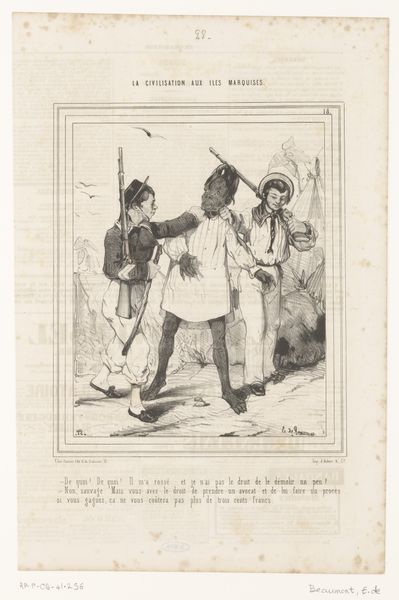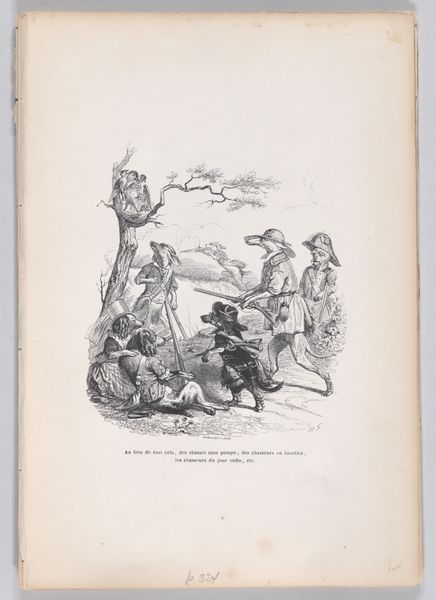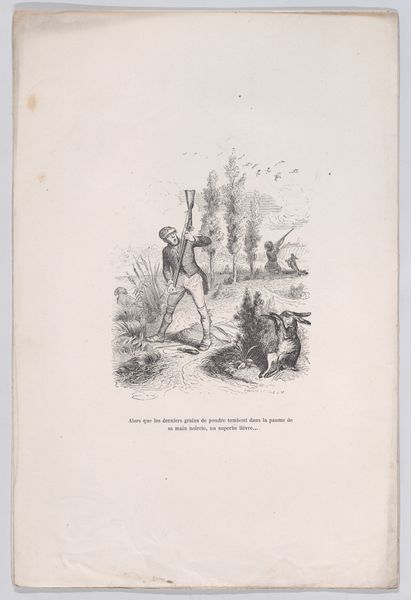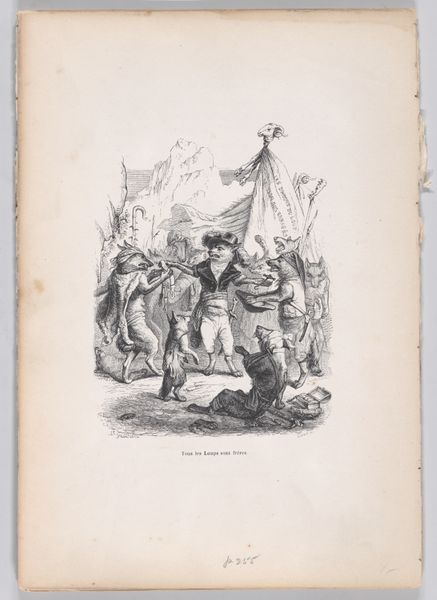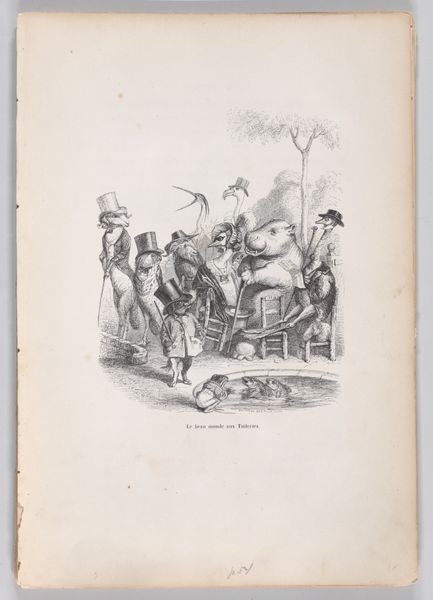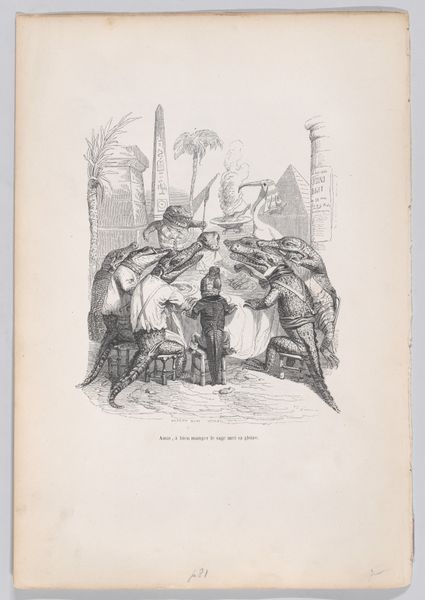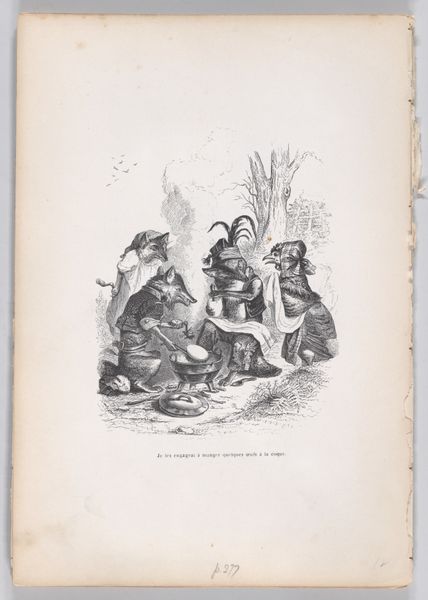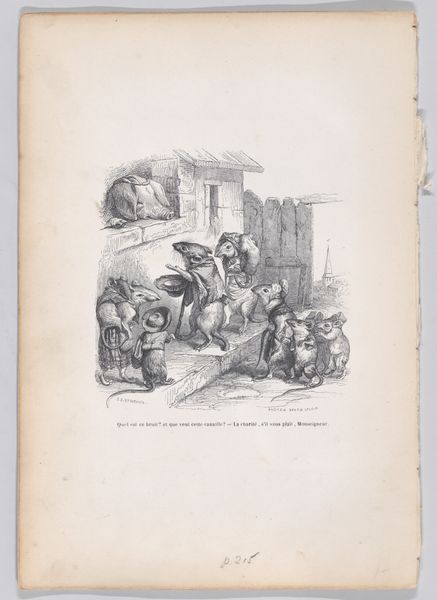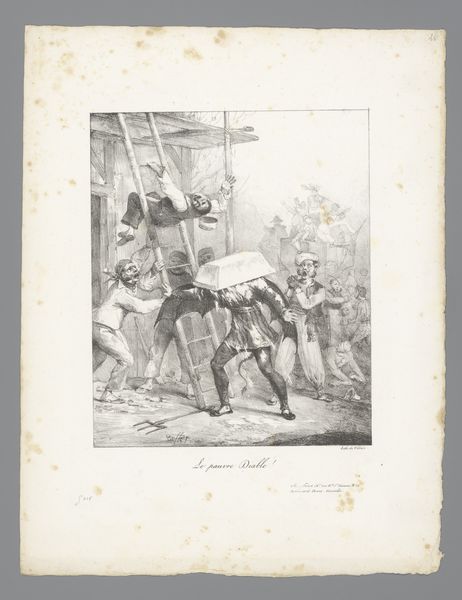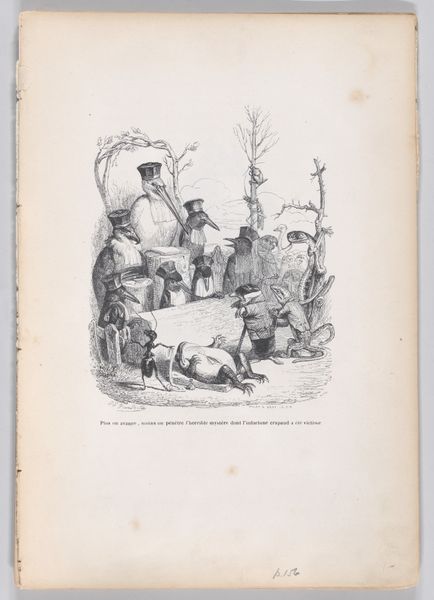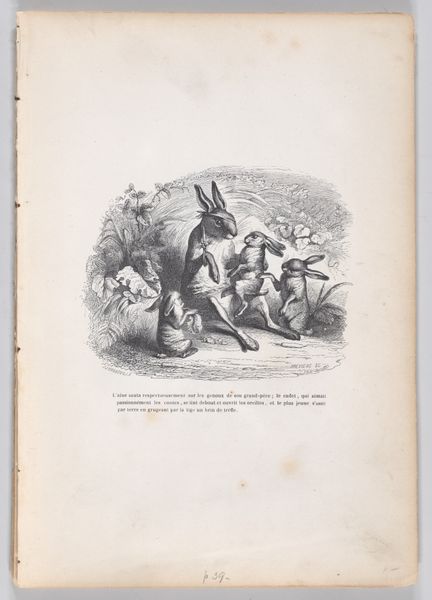
"More than once, while leaving the masked ball Mr. de *** was arrested by the patrol officers" from Scenes from the Private and Public Life of Animals 1832 - 1852
0:00
0:00
drawing, print, ink
#
drawing
# print
#
caricature
#
ink
#
romanticism
#
genre-painting
Dimensions: Sheet: 10 3/8 × 7 3/16 in. (26.3 × 18.3 cm)
Copyright: Public Domain
Curator: This delightful, if subtly mordant, print is by J. J. Grandville. Part of his Scenes from the Private and Public Life of Animals, this piece, dating from between 1832 and 1852, is entitled "More than once, while leaving the masked ball Mr. de *** was arrested by the patrol officers." Grandville worked in ink, demonstrating his skill with caricature, deeply embedded in the Romanticism of his time. Editor: Oh, my goodness, what a darkly funny scene! It looks like a bunch of party animals actually *are* animals. Those two goats wobbling out of the doorway clearly had a *night.* It makes me think, "What transgressions could they have committed?" It just feels a bit naughty, don’t you think? Curator: Indeed. Grandville used anthropomorphic figures to critique the foibles and vices of bourgeois society, really tapping into genre painting through an innovative lens. Here, Mr. de ***, whose species remains diplomatically unnamed, is humorously targeted for scrutiny. His arrest highlights questions of class, power, and perhaps even speciesism— the prejudice or discrimination based on the ground of species. Editor: It's incredible. Look at the detail on the 'police force'--that cocky rooster, that badger with a pitchfork--pure brilliance. You have to wonder about Grandville's state of mind! So, are these romanticized animal-people standing in for people Grandville might not have liked in French society, or are the animals’ behaviors being caricatured to comment on something human behavior? Curator: Exactly. Grandville adeptly used his creatures to satirize contemporary social mores, poking fun at authority and questioning societal structures in his own period, as it relates to questions around how the law treats different people. He places them within a complex intersectional narrative exploring class, gender—through the masked ball, suggestive of gender transgression—and political identity. The fact that his main character must obscure their name perhaps means he hits close to the mark, doesn’t it? Editor: Absolutely, and the message still sings out today. You can’t help but imagine how the animal kingdom is reflecting back our society, then and now! It’s a delicious blend of absurdity and societal criticism. It reminds me that even while wearing our best masks we are all susceptible to a little bit of over-indulgence… or worse! Curator: It also shows us how historical caricatures provide space for us to examine the construction of the human experience, even through these creatures. Grandville prompts reflection and perhaps a commitment to a more equal world. Editor: Yeah, it makes you realize the carnival has always been a good place to raise hell... and hopefully get away with it. Until, of course, the rooster comes knocking.
Comments
No comments
Be the first to comment and join the conversation on the ultimate creative platform.
